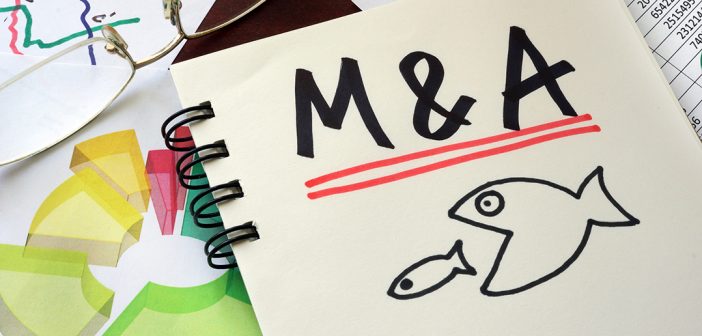What company or brand first comes to mind when you read this list: 1) online videos 2) cellphones 3) movie/television streaming platforms 4) online search engines 5) social media networks 6) computers and 7) online shopping. If you said: YouTube, Apple/Samsung, Netflix, Google, Facebook/Instagram, Microsoft, and Amazon, you would be in agreement with the answers of the majority of people I read this list to. Although familiarity is not necessarily an indicium of a monopoly, many of the companies listed above possess other hallmark characteristics of monopolies.
A monopoly is a when a sector or industry becomes dominated by one corporation, firm, or entity.[1] The characteristics of a monopolist corporation include: (1) operating in an industry or market with high barriers to entry, (2) being the singular seller within that industry or market, (3) deciding the price for its products/services, and/or (4) engaging in price discrimination.[2] The FTC finds that a company has a monopoly when it (1) unreasonably restrains competition through its market power and (2) gained that leading position in the market through improper conduct.[3] A company that simply has a better product, good management, or good timing does not qualify as improper conduct.[4] Also, if a company can justify its conduct in a way that benefits the consumer, then courts may deem the firm’s exercise of seemingly disproportionate market power as legitimate.[5]
A prominent case where the courts defined a monopolist company is United States v. Microsoft. The courts deemed Microsoft to have a monopoly based on the company’s practices underlying its development and utilization of the operating systems in their computers.[6] Microsoft deliberately made it difficult for its customers to use non-Microsoft software on its products.[7] This restraint on trade was exacerbated by Microsoft’s practice of granting free licenses to use its products, making it difficult for other software developers to compete.[8] Microsoft ultimately settled the case by agreeing to change their conduct and allow rivals to develop competing software.[9] There has been substantial discussion about whether technology companies, such as those mentioned above, have monopolies in their respective markets.[10] This discussion has diverted the public’s attention away from other firms having monopolies outside the technology sector. This post will focus on two more companies that also have monopolies: Monsanto and Consolidated Edison (“ConEd”).
Monsanto was an American agrochemical and agricultural biotech company that developed into a major producer of GMO crops.[11] Their primary genetically modified crop was corn.[12] Most consumers are not aware that corn is used in just about everything, ranging from food, tires, batteries, and toothpaste. Monsanto’s GMO corn was capable of withstanding any known herbicide. However, what gave Monsanto a monopoly was their patent of their kernels. The patent prevented farmers from reusing their seeds from the previous spring and forced them to purchase a new batch of seeds each year. Due to this patent and the market power of the company, no other GMO companies in America were able to compete. Another issue is that farmers using non-GMO seeds often lose their crops to herbicides intended for use on neighboring farms using the GMO seeds. This created an incentive for farmers to purchase seeds solely from Monsanto because the patent prevented other companies from offering seeds that can withstand herbicides.[13]
In late 2016, Monsanto was bought out by Bayer, another company that arguably holds a monopoly, for $66 billion dollars. In early to mid-2018, the deal was approved by the European Union and the United States.[14] Bayer is a German multinational pharmaceutical company and it is one of the largest in the industry.[15] The merging of these two monoliths is indicative of a trend towards having stronger monopolies forming in the coming years. Following this merger, it is estimated that 61% of global seeds and pesticides production are now in the hands of three companies; the other two companies are DowDuPont and ChemChina.[16]
ConEd is one of the largest energy companies in the United States and is virtually the only power company in the New York metropolitan area.[17] ConEd’s three biggest competitors are FirstEnergy, Eversource and PSEG.[18] There are many energy companies within New York City who go by a different name but are still run by ConEd; for example, Great Eastern Energy.[19] ConEd fits the characteristics of a monopoly because it operates in a market where there are high barriers as a virtual single seller.
Monsanto and ConEd are examples of monopolist companies and indicate the role of monopolies in the modern economy. Monsanto shows the dangers of allowing a company to operate with complete control over the price of its products. However, ConEd shows how a monopoly can exist to the public’s benefit in a highly regulated form to ensure that the firm does not unlawfully exploit its market position. Are there monopolies in 2019 that escape the scope of punishment of the courts and the FTC? Absolutely. Whether or not monopolies are a bad thing is for the consumer and aspiring competitors to decide.
[1] Monopoly, Investopedia, https://www.investopedia.com/terms/m/monopoly.asp (last visited Feb. 21, 2019).
[2] Id.
[3] Monopolization Defined, Fed. Trade Comm’n, https://www.ftc.gov/tips-advice/competition-guidance/guide-antitrust-laws/single-firm-conduct/monopolization-defined (last visited Feb 21, 2019).
[4] Id.
[5] Id.
[6] United States v. Microsoft Corp., 346 U.S. App. D.C. 330, 253 F.3d 34 (2001).
[7] Id.
[8] Id.
[9] Id.
[10] You Decide: Should We Worry About Monopolies?, C. of Agric. and Life Sci. News, https://cals.ncsu.edu/news/you-decide-should-we-worry-about-monopolies/ (last visited Mar 9, 2019).
[11] Food, Inc. (2008).
[12] Id.
[13] Id.
[14] Bayer, Wikipedia, https://en.wikipedia.org/wiki/Bayer (last visited Feb. 21, 2019).
[15] Id.
[16] Arthur Neslen, 2 Huge Companies Are Set To Merge. Here’s Why You Should Care., Huffington Post, https://www.huffingtonpost.com/entry/monsanto-bayer-merge_us_5afeef96e4b07309e0578b5e (last visited Feb. 21, 2019).
[17] Nicole Gelinas, Monopoly Power, N.Y. Times (2006), https://www.nytimes.com/2006/07/30/opinion/nyregionopinions/30CIgelinas.html (last visited Mar 9, 2019).
[18] Con Edison, Owler, https://www.owler.com/company/conedison (last visited Feb 21, 2019).
[19] Switching Your Energy Provider, Great Eastern Energy, https://www.greateasternenergy.com/switch/con-edison-switch/ (last visited Feb 21, 2019).

